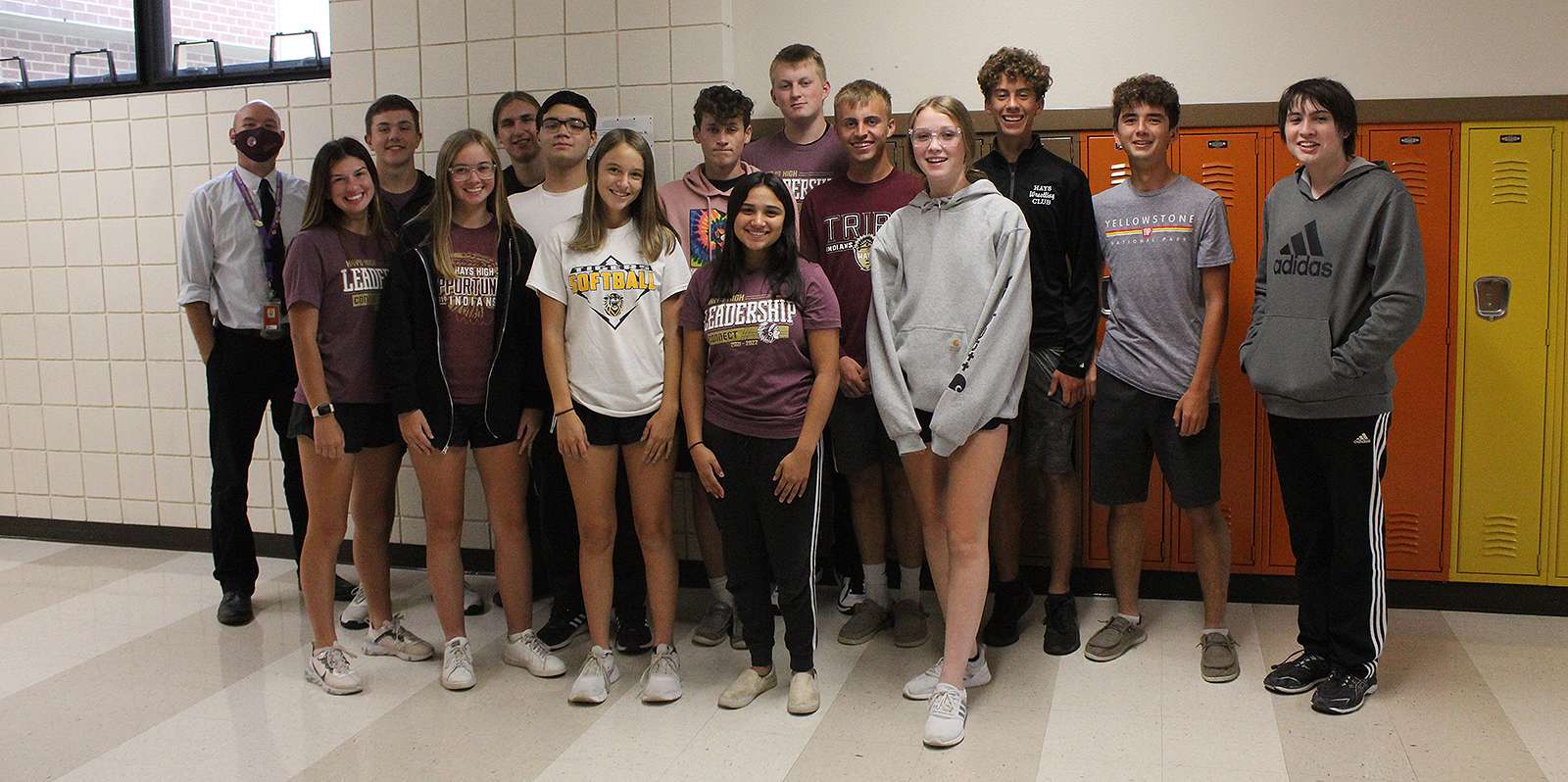
By CRISTINA JANNEY
Hays Post
Hays High School juniors in American history have been learning about 9/11.
They weren't born when the 9/11 attacks happened 20 years, but they were assigned to interview their parents or loved ones about their memories of an event that changed the course of American history.
This week, Hays Post visited with Luke Lundmark's class about what they have learned about the attacks.
The events of 9/11, although now a generation ago, are still too fresh to be recorded in textbooks. Although most of the students said they learned about 9/11 at school, they said they had watched videos or heard accounts from their teachers.
During their unit on 9/11 this week, the students in Lundmark's class also watched a video on the attacks produced by "60 Minutes" Australia.
Aspen Melvin talked with her dad about the attacks. He was a young teacher at the time. He told her he was in shock when he was told about the attacks. Televisions were wheeled into classrooms, and the teachers and students watched the news coverage of the attacks during the rest of the school day.
Blake Buckles' mother is a doctor and was in the operating room when a nurse told her about the attacks. She told her son she too was in shock when she was told.
"She said she never thought that type of thing would happen to the United States or anyone else," he said. ... "The whole hospital was in a state of shock, and they didn't know what might happen next or where it was going to happen. Everyone was in a state of question."
He said in the last week he learned more about how many people were touched by the 9/11 attacks.
"It wasn't just Americans," he said. "It was people all over the world."
Meg Taggart's mother told her the United States came together after 9/11 in a way she hasn't seen since. However, that nationalism had a dark side. People of Middle Eastern descent living in the United States were treated badly in the wake of the attacks.
Lundmark said he was working in a school in California with many Iraqi Christians who had relocated to the region after the invasion of Iraq.
"Even though they faced a lot of backlash in California from people who didn't understand who they were or why they were there," he said ...
"Not once did they lose their patriotism for the United States. Even when they had Americans screaming at them 'Go away, terrorists. Go back where you came from.' They said they woke up every day and said they loved America because America gave them freedom."
Lundmark also shared his own experiences with 9/11. He was a college student at the time. His adviser was supposed to be on the flight that hit the north tower, but he had taken an earlier flight home so he could make an early class.
Lundmark said his adviser was wracked with survivor's guilt for years after the attacks.
Cyrus Vajnar said he first learned about the attacks when he was in elementary school. His school had a day of remembrance.
He said he was told "bad people" flew planes into two towers in New York and a lot of people were killed.
He learned later about the attack on the Pentagon and about the heroes aboard the fourth plane that crashed in Pennsylvania later.
Jordin Myers said of the terrorist, "They wanted to scare us."
Terror is not something these students consider in the past tense.
Vajnar said he associates terror with the Middle East. He said he also has connected it with Taliban's takeover of Afghanistan.
Taggart said she feels safe from terrorism, but her cousin who is in the Navy told her she's concerned about the possibility of terrorists entering the United States during the chaotic evacuation of Afghanistan.
Bradyn Dreher said he thought the United States leaving Afghanistan near the 20th anniversary of 9/11 is a disgrace to the people who died there.
Vajnar said, "I think it was 20 years and billions of dollars wasted."
Taggart said she thinks it's important to continue to commemorate 9/11.
"I think it is important because a lot of people lost their lives because they were in the wrong place at the wrong time," she said. "Others lost [their lives] because they volunteered to go in and save people."






